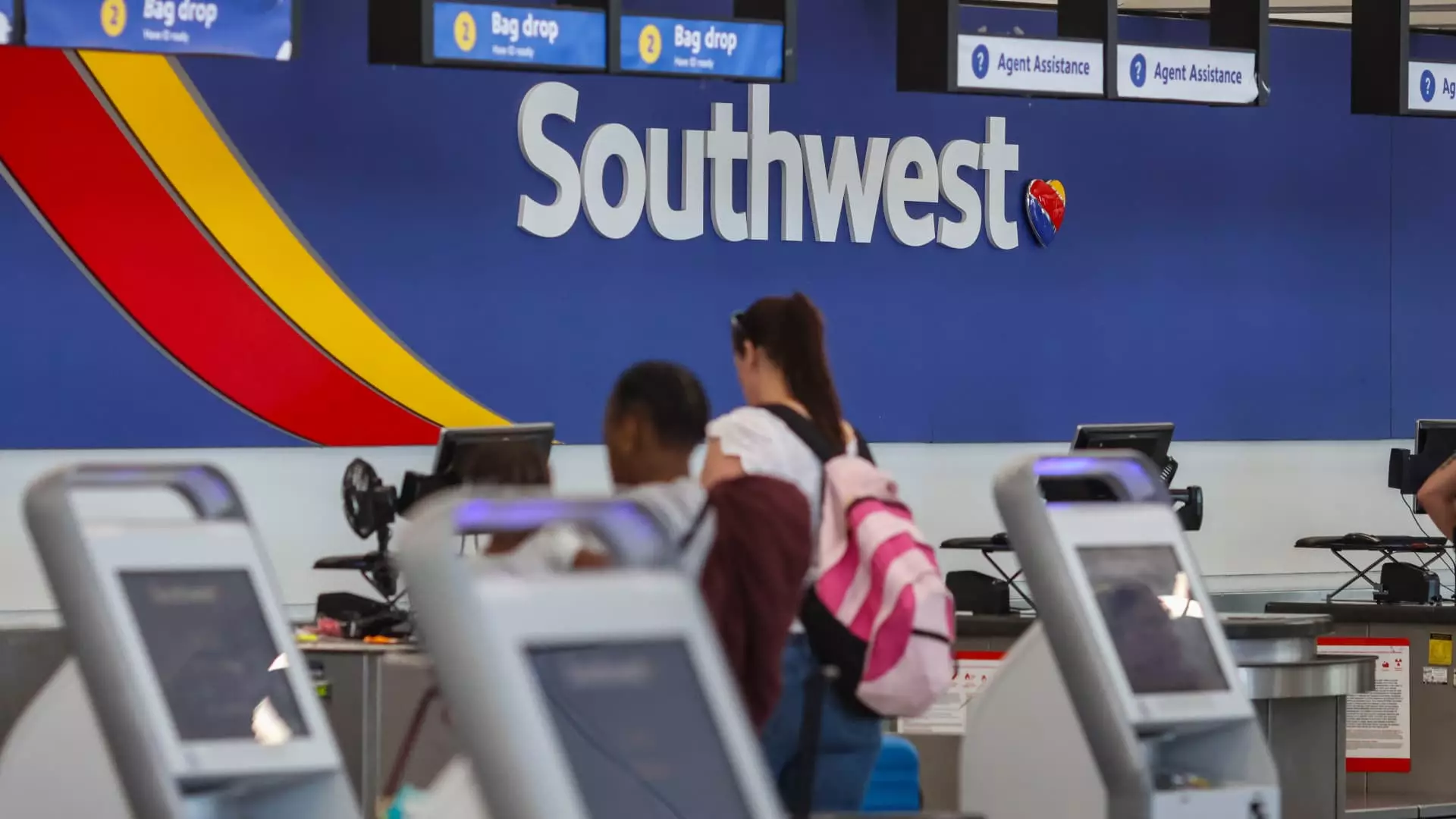In a significant move that underscores the evolving landscape of the airline industry, Southwest Airlines has announced plans to scale back its operations in Atlanta for 2025. This decision comes amidst rising pressure from investors and a shifting market landscape. By cutting over 300 positions, including both pilots and flight attendants, Southwest is navigating a difficult environment as it seeks to realign its operational framework and restore profitability.
The announcement from Southwest is particularly noteworthy given its timing. Occurring a day before the airline’s investor day, the news appears strategically designed to address concerns from shareholders, particularly the influential Elliott Investment Management. The company recognizes the need to adapt to new economic realities—striving to balance cost reductions while enhancing revenue opportunities. With Atlanta being a critical hub and the world’s busiest airport, the airline’s decision to shrink its footprint raises questions about its long-term strategy and viability in a market dominated by competitors like Delta Air Lines.
According to an internal memo obtained by CNBC, the cuts will involve approximately 200 flight attendants and 140 pilots. Importantly, Southwest is providing assurances that it is not closing its Atlanta crew base. Employees will not face immediate layoffs, but they may need to apply for positions in other cities—a significant adjustment for many. The reduction means that the airline will operate from just 11 gates next year, down from 18, and will serve only 21 destinations compared to 37 this March. Such changes highlight a strategic retreat designed to streamline operations in the face of ongoing financial pressures.
In its communication, Southwest stated, “Although we try everything we can before making difficult decisions like this one, we simply cannot afford continued losses.” This reflects a growing urgency to adapt to market conditions, which include alterations in travel demand. The memo further emphasizes the airline’s respect for its employees, stating that the decision does not reflect their performance. Nonetheless, such changes invariably place an emotional and professional burden on the workforce, as they navigate uncertain futures in a highly competitive industry.
Alongside workforce reductions, Southwest is taking proactive steps to optimize its network. The airline plans to increase services to Nashville and introduce overnight flights from Hawaii to various U.S. destinations. This adjustment marks a strategic pivot towards better-utilized routes and destinations that align with consumer demand. The expanded scheduling through to June 2024 emphasizes Southwest’s intention to capture emerging opportunities while redefining its operational priorities.
The challenges Southwest faces are multi-faceted, including changing booking patterns, oversupplied market segments, and significant delays in aircraft supply due to issues with Boeing. Recent announcements, such as the plan to phase out open seating and introduce additional legroom, indicate a broader transformation strategy to enhance customer experience while coping with operational setbacks. The COO’s comments regarding the necessity for “difficult decisions” signal a forthcoming period of restructuring aimed at reinvigorating Southwest’s financial health.
As Southwest Airlines embarks on this new chapter marked by service reductions in Atlanta, it simultaneously illustrates the broader volatility that characterizes the airline industry today. The cuts are not just a response to immediate financial pressures but also reflect a recalibration of the airline’s long-term vision. With operational adjustments and ongoing navigations of market dynamics, Southwest continues to seek a balance that supports both profitability and workforce stability. The forthcoming actions will be closely monitored—not just by investors but by industry observers keen to understand how Southwest’s strategies play out in the competitive landscape of air travel.

